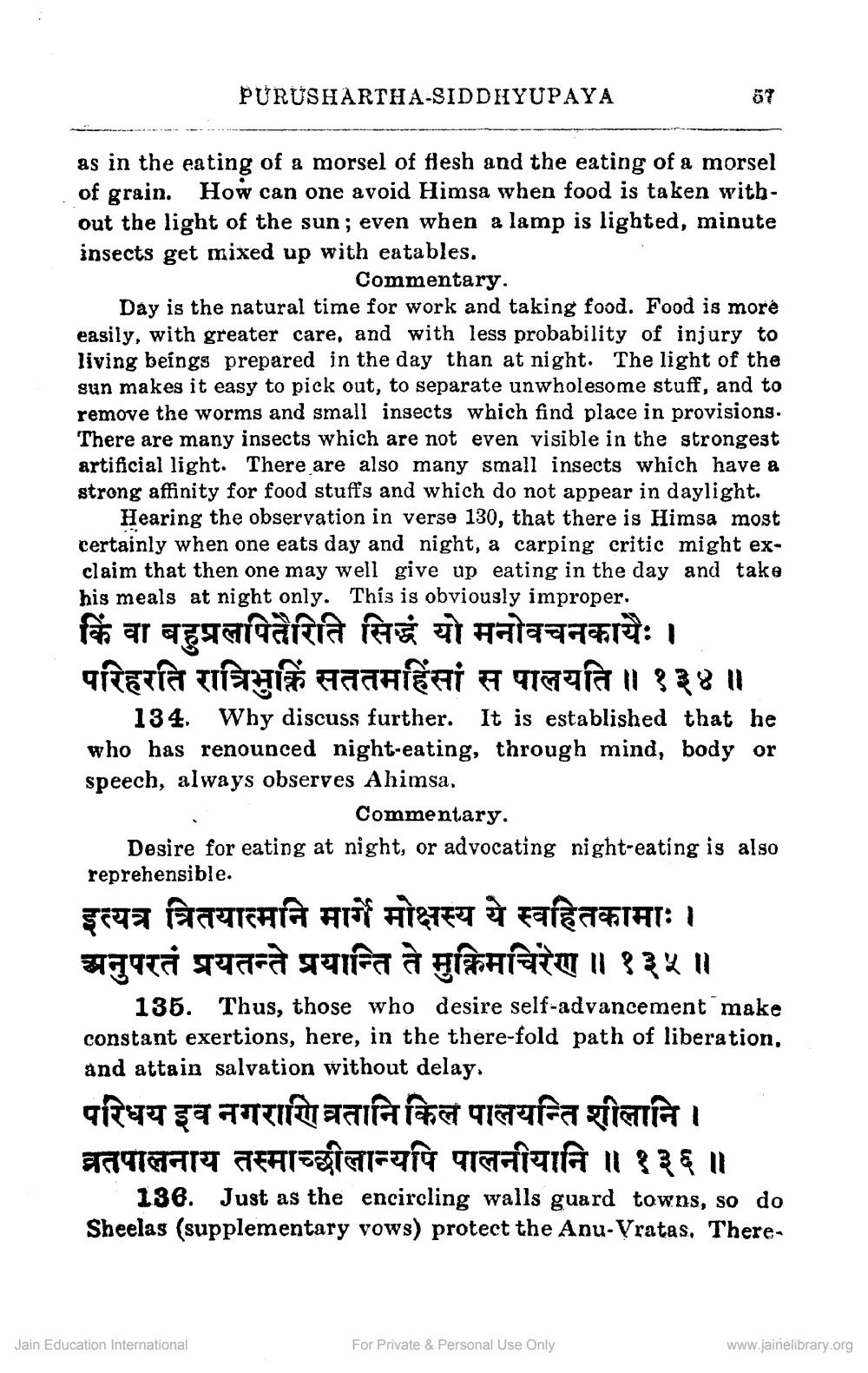________________
PURUSHARTHA-SIDDHYUPAYA
as in the eating of a morsel of flesh and the eating of a morsel of grain. How can one avoid Himsa when food is taken without the light of the sun; even when a lamp is lighted, minute insects get mixed up with eatables.
Commentary Day is the natural time for work and taking food. Food is more easily, with greater care, and with less probability of injury to living beings prepared in the day than at night. The light of the gun makes it easy to pick out, to separate unwholesome stuff, and to remove the worms and small insects which find place in provisions. There are many insects which are not even visible in the strongest artificial light. There are also many small insects which have a strong affinity for food stuffs and which do not appear in daylight.
Hearing the observation in verse 130, that there is Himsa most certainly when one eats day and night, a carping critic might exclaim that then one may well give up eating in the day and take his meals at night only. This is obviously improper. किं वा बहुप्रलपितैरिति सिद्धं यो मनोवचनकायैः । परिहरति रात्रिभुक्ति सततमहिंसां स पालयति ॥ १३४॥
134. Why discuss further. It is established that he who has renounced night-eating, through mind, body or speech, always observes Ahimsa.
Commentary. Desire for eating at night, or advocating night-eating is also reprehensible. इत्यत्र त्रितयात्मनि मार्गे मोक्षस्य ये स्वहितकामाः। अनुपरतं प्रयतन्ते प्रयान्ति ते मुक्किमचिरेण ॥ १३५॥
135. Thus, those who desire self-advancement make constant exertions, here, in the there-fold path of liberation, and attain salvation without delay. परिधय इव नगराणि व्रतानि किल पालयन्ति शीलानि। व्रतपालनाय तस्माच्छीलान्यपि पालनीयानि ॥१३६॥
136. Just as the encircling walls guard towns, so do Sheelas (supplementary vows) protect the Anu-Vratas, There
Jain Education International
For Private & Personal Use Only
www.jainelibrary.org




